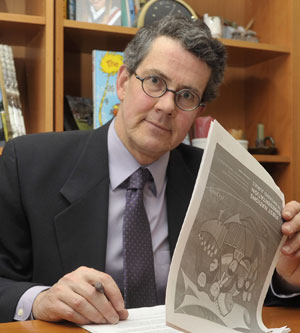Some members of the Canadian Bar Association are considering giving up their memberships after the organization decided to act as a neutral intervenor in Chevron Corp.’s upcoming legal battle against the indigenous Mayan people of Ecuador at the Supreme Court of Canada.

E-mails obtained by
Law Times show the CBA is moving ahead with the intervention despite a recommendation from the aboriginal law section that it refrain from doing so. The e-mails suggest some executive members of the section have resigned as a result of the organization’s decision.
The thrust of the case against Chevron is that the company caused extensive pollution in the Lago Agrio region of Ecuador. The indigenous villagers had obtained judgment for $9.51 billion in a local court against Chevron and they’re now seeking to enforce it against the company’s assets in Ontario.
A lower court had tossed out the case against Chevron on grounds that there was no jurisdiction in Ontario to enforce the judgment, but the Ontario Court of Appeal reversed that decision.
The CBA denies it’s backing Chevron and says its position will simply clarify corporate principles, including the corporate veil and the enforceability of foreign judgments in Canada. This includes the notion of “enterprise liability”, or one corporation being liable for the actions of another. This argument is unrecognized in Canada, the U.S. or elsewhere.
The second question focuses on jurisdiction – the enforceability of foreign judgments in Canada. In this case, the Ontario court granted jurisdiction even though Chevron Canada is not headquartered in Ontario and is not engaged in any activities at issue in that jurisdiction. The CBA will be arguing that this jurisdiction shopping would set a harmful precedent for the administration of justice in Canada.
But some members, such as aboriginal section executive member David McRobert, say they fundamentally disagree with those principles.
“We think corporations have too much power in society, and there are issues around accountability,” says McRobert.
McRobert says he’s so unhappy with the CBA’s decision to intervene that he’s struggling with whether or not to terminate his membership.
The concern for some members of the CBA is that the organization has retained Blake Cassels & Graydon LLP for its intervention given that the firm acts for Chevron in other matters.
McRobert says the decision to intervene in the case is inconsistent with the CBA’s approach to previous situations. Unlike the current case, he says the CBA often dives into matters when they relate to the role of lawyers, such as issues of solicitor-client privilege, he says.
The decision to advance corporate principles in this matter gives the public an impression that lawyers are against the rights of aboriginal people, according to McRobert, who notes Chevron is a well-represented party in this matter and that entities other than the CBA could intervene without causing a controversy.
“As a precedent for the CBA, I worry about what it signals,” he says.
Another member of the aboriginal law section, Judith Rae, says several people from her firm, Olthuis Kleer Townshend LLP, have resigned their membership and notes she’s “definitely considering it.”
“I have two concerns. The first is that I don’t think this is a good case for CBA intervening and if they were intervening, I don’t think it’s the right position to be taking,” she says.
The CBA should properly consult members when it decides to intervene in a controversial matter, according to Rae. She says even the legislation and law reform committee of the CBA, which is responsible for reviewing appropriate matters for intervention, is against the decision to intervene in this case.
In its application to intervene, the CBA wrote that it has “a direct and significant interest in the issues raised in this appeal” as 4,500 of its members are in-house lawyers, some of whom have corporations as clients.
In a statement to
Law Times, the CBA admitted the issues around the case are “arguably deplorable” but still defended its decision to intervene.
“The CBA appreciates fully that the circumstances surrounding this case are controversial, arguably deplorable. The decision to intervene does not mean that the CBA supports Chevron or their actions in Ecuador in any way, shape or form,” the CBA said.
Correction: Indigenous people of Ecuador are not Mayan as originally stated.
Update Oct. 7: To clarify CBA as neutral intervenor.

 E-mails obtained by Law Times show the CBA is moving ahead with the intervention despite a recommendation from the aboriginal law section that it refrain from doing so. The e-mails suggest some executive members of the section have resigned as a result of the organization’s decision.
E-mails obtained by Law Times show the CBA is moving ahead with the intervention despite a recommendation from the aboriginal law section that it refrain from doing so. The e-mails suggest some executive members of the section have resigned as a result of the organization’s decision.